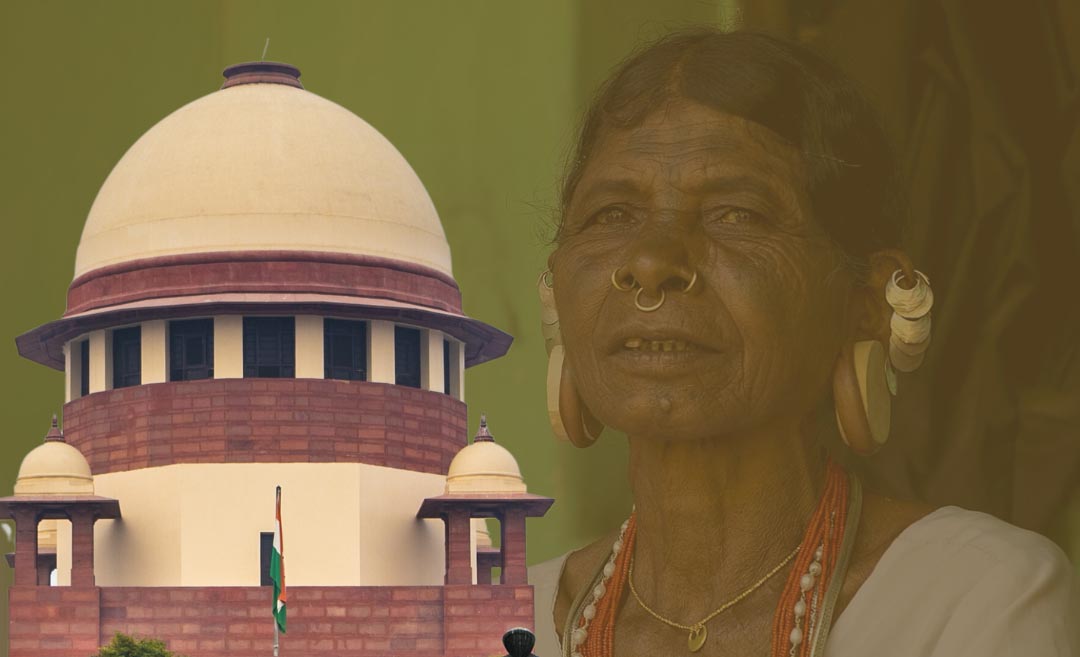The case of Tirith Kumar & Ors. vs. Daduram & Ors.[ 2024 INSC 1005] brings into focus the complex relationship between statutory law and tribal customs in matters of inheritance. This Supreme Court decision tackled the key issue of whether the Hindu Succession Act, 1956 (HSA, 1956), applies to the Sawara tribe, a Scheduled Tribe under Article 342 of the Constitution. The dispute revolved around a 13.95-acre plot of land in Village Bagri Pali, and the judgment explored whether daughters could claim inheritance rights under the prevailing legal framework.
Background of the case
The land in question originally belonged to Chuchrung, who passed it down to his two sons, Mardan and Puni Ram. Both sons inherited the property jointly. Mardan and his wife died in 1951, leaving behind three daughters—Jagmati, Tilobai, and Nanhibai—while Puni Ram passed away in 1960. The plaintiffs, descendants of Puni Ram, claimed exclusive ownership of the property, arguing that since Mardan died in 1951—before the HSA, 1956, came into force—his daughters could not inherit the property under the then-prevailing customary laws or Hindu law. According to their argument, Mardan’s share reverted to his brother Puni Ram. Conversely, the defendants, representing Mardan’s daughters and their descendants, argued that Sawara customs should govern the inheritance and that they had a rightful claim to the property.
The Act, which granted inheritance rights to daughters, came into effect in 1956, years after Mardan’s death. Prior to its enactment, Hindu law and customary practices often excluded women from inheriting property. The trial and appellate courts relied on the argument that the Sawara tribe had adopted Hindu customs and principles, thereby disqualifying Mardan’s daughters from inheriting under the legal framework of that time.
However, the High Court rejected this interpretation, pointing out that Section 2(2) of the HSA, 1956, explicitly excludes Scheduled Tribes unless specifically notified by the government. The High Court emphasised that tribal customs—not Hindu law—should govern the inheritance in this case. However, it allowed the property to the daughters on the basis of justice, equity and good conscience.
Supreme Court’s judgment
The Supreme Court upheld the High Court’s ruling, reaffirming that the HSA, 1956, did not apply to Scheduled Tribes unless expressly notified. However, recognising the principles of justice, equity, and good conscience, the Court allowed Mardan’s daughters and their descendants a share of the property. This balanced approach acknowledged the need to respect tribal customs while addressing the broader issue of gender inequality in inheritance rights.
The judgment underlined that denying Mardan’s daughters any claim to the property solely because of the timing of their father’s death and the non-applicability of statutory law would perpetuate unfairness. By invoking equitable principles, the Court ensured that the daughters were not left entirely dispossessed, setting a precedent for similar disputes involving tribal customs and gender justice.
Evolution of Women’s Property Rights The case reflects India’s broader struggle to establish gender equality in property rights. Historically, women were excluded from inheritance under patriarchal customs and laws.
- Before Independence: Women’s property rights were dictated by customary laws, which heavily favoured male heirs. Women had little to no economic independence.
- Hindu Women’s Right to Property Act, 1937: This marked a step forward by granting limited inheritance rights to Hindu widows, although these rights were often subordinate to those of male relatives.
- Hindu Succession Act, 1956: The Act aimed to eliminate gender-based discrimination, granting women absolute ownership under Section 14. However, loopholes allowed fathers to disinherit daughters by relinquishing their shares.
- Hindu Succession (Amendment) Act, 2005: This amendment ensured equal rights for daughters in ancestral property, placing them on par with sons. The landmark case of Vineeta Sharma vs. Rakesh Sharma (2020) [(2020) 9 SCC 1] further reinforced these rights. In this case, the Court ruled that daughters have equal coparcenary rights in Hindu joint family property by virtue of their birth, irrespective of whether their father was alive when the Hindu Succession (Amendment) Act, 2005, came into effect. This judgment clarified that the 2005 amendment is retroactive, applying to daughters born before or after its enactment, thereby ensuring they possess the same rights and liabilities as sons in ancestral property.
Challenges for tribal (Adivasi) women
Despite advancements in statutory law, tribal women often remain excluded from inheritance due to customary practices. Section 2(2) of the HSA, 1956, preserves tribal autonomy by excluding Scheduled Tribes from its ambit unless specifically notified. While this protects cultural traditions, it often entrenches gender inequality.
Why the case matters
The case of Tirith Kumar vs. Daduram highlights the importance of interpreting laws in context. The timing of Mardan’s death and the inapplicability of the HSA, 1956, raised questions about how inheritance rights should be determined for Scheduled Tribes. By invoking equitable principles, the Supreme Court ensured that the daughters were not left entirely without a claim, setting a significant precedent for future cases involving tribal communities. The court reiterated a suggestion/recommendation made in Kamla Neti v. LAO[(2023) 3 SCC 528] to the Central Government in which it directed to examine the issue of survivorship rights for female tribals and consider amending the Hindu Succession Act to withdraw the exemptions that make it inapplicable to Scheduled Tribes.
While judicial interventions address some inequities, systemic reforms are necessary. Extending the provisions of the HSA, 2005, to Scheduled Tribes could provide a more inclusive framework for property rights. However, such reforms must balance the need for gender equality with the preservation of tribal autonomy and cultural identity.
The judgement of the Supreme Court may be read here
(The author is part of the organisations legal research team)
Related:
A right half won, evolution of women’s right to property under the Hindu Succession Act
“Anniversary Tribute: Think Hindu Widows’ Remarriage, Think Vidyasagar”

